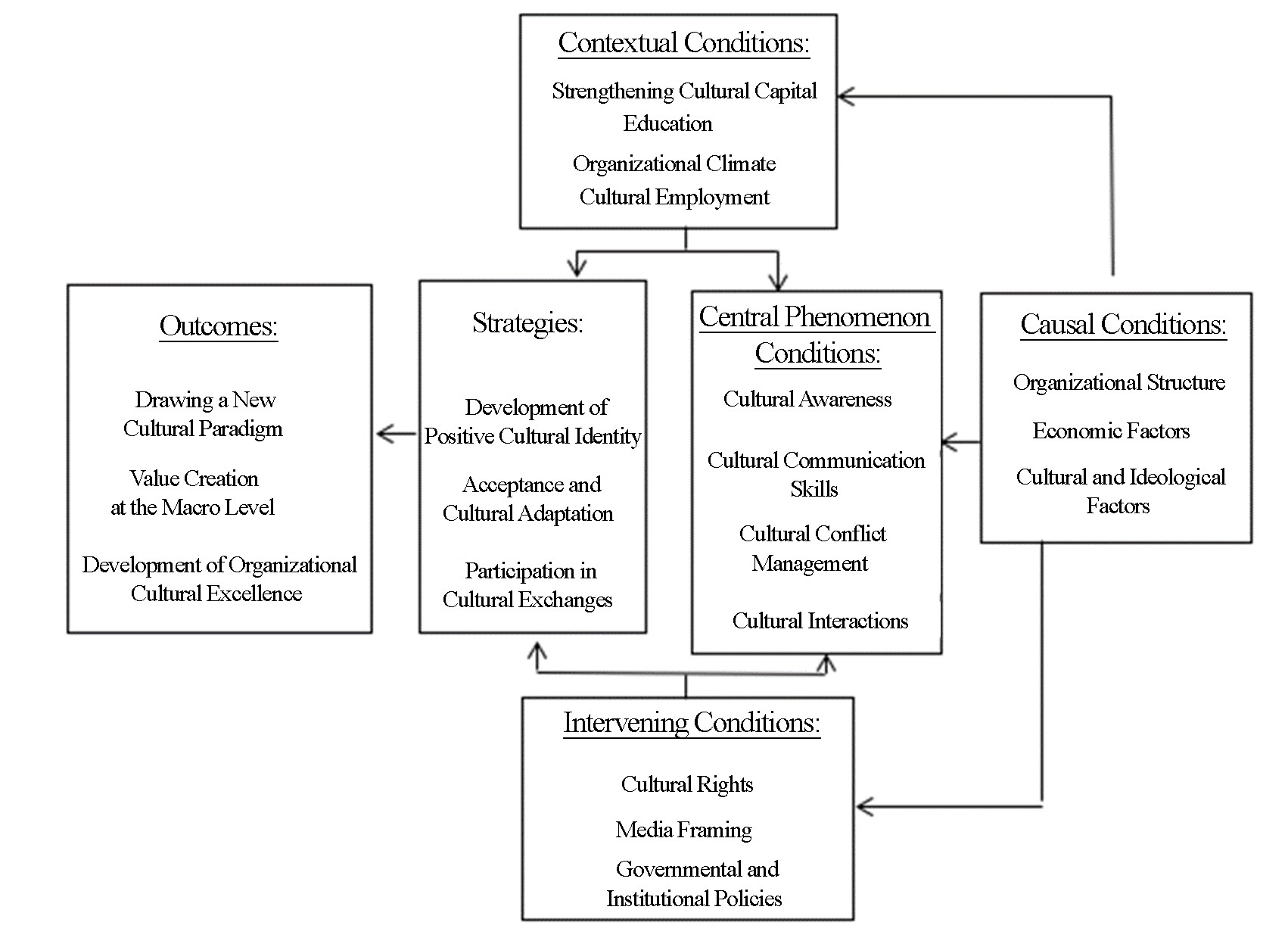Assessment of the Role of Cultural Navigation in the Development of Cultural Identity
Keywords:
Culture, Cultural Navigation, Cultural IdentityAbstract
In today’s world, the phenomenon of globalization and the expansion of communication technologies have increasingly enhanced intercultural interactions. In this context, the concept of "cultural navigation" has gained special significance as a process through which individuals and communities can navigate diverse cultural environments and adapt to communication challenges and cultural differences. This study aimed to evaluate the role of cultural navigation in the development of cultural identity. The research is applied in terms of its objective, exploratory in terms of its approach, and employs a mixed-methods (qualitative-quantitative) design for data analysis. In the qualitative phase of the study, and for the purpose of model design based on grounded theory methodology, a group of experts in cultural fields (university professors, executive managers, and consultants) were selected and underwent in-depth interviews. In this phase, purposive sampling was employed, and the process continued until theoretical saturation was achieved, resulting in a total of 15 interviews. In the quantitative phase, cultural sector managers were considered the population, and among them, 115 individuals were selected as the statistical sample through stratified random sampling with proportional allocation. In the qualitative phase of the research, due to the use of grounded theory, the data collection tool was unstructured interviews with experts. In the quantitative phase, the main data collection tool was a researcher-developed questionnaire consisting of 74 items, designed based on the initial conceptual model. In the quantitative phase, SPSS and SmartPLS software were used to conduct descriptive and inferential analyses. The results of the research led to the design of a process model (based on the structure of the paradigm model) for assessing the role of cultural navigation in the development of cultural identity, and the hypothetical relationships of the model were tested and confirmed in a large population.












